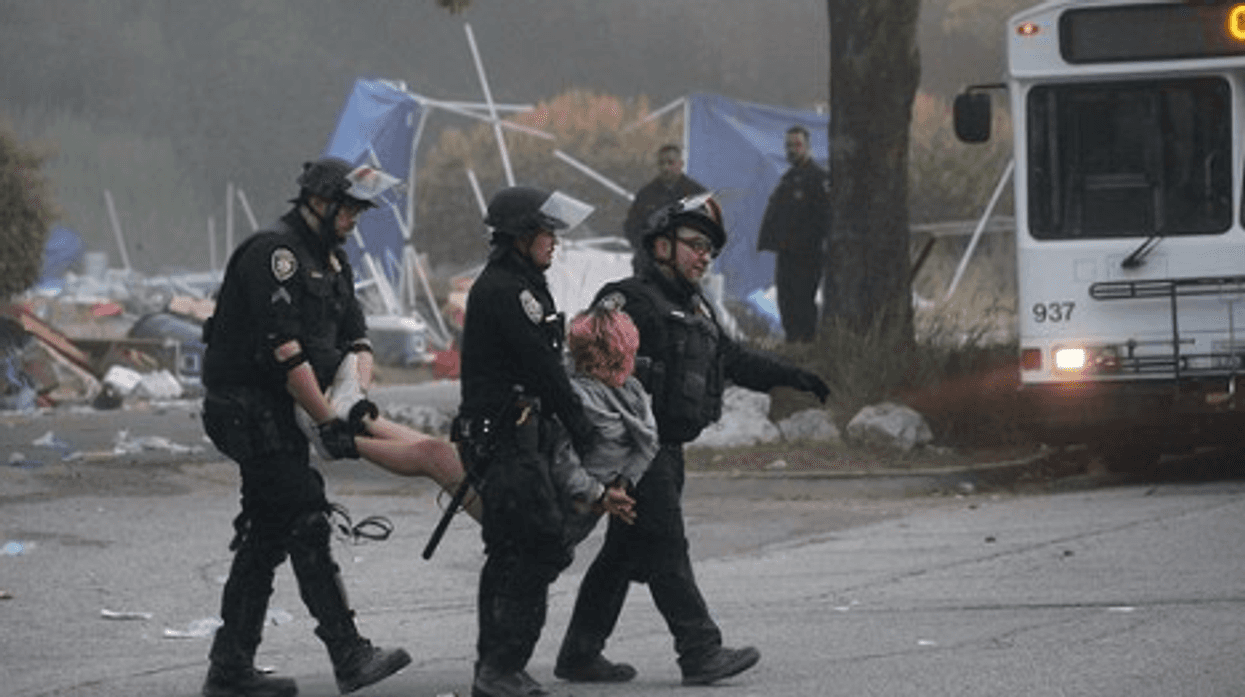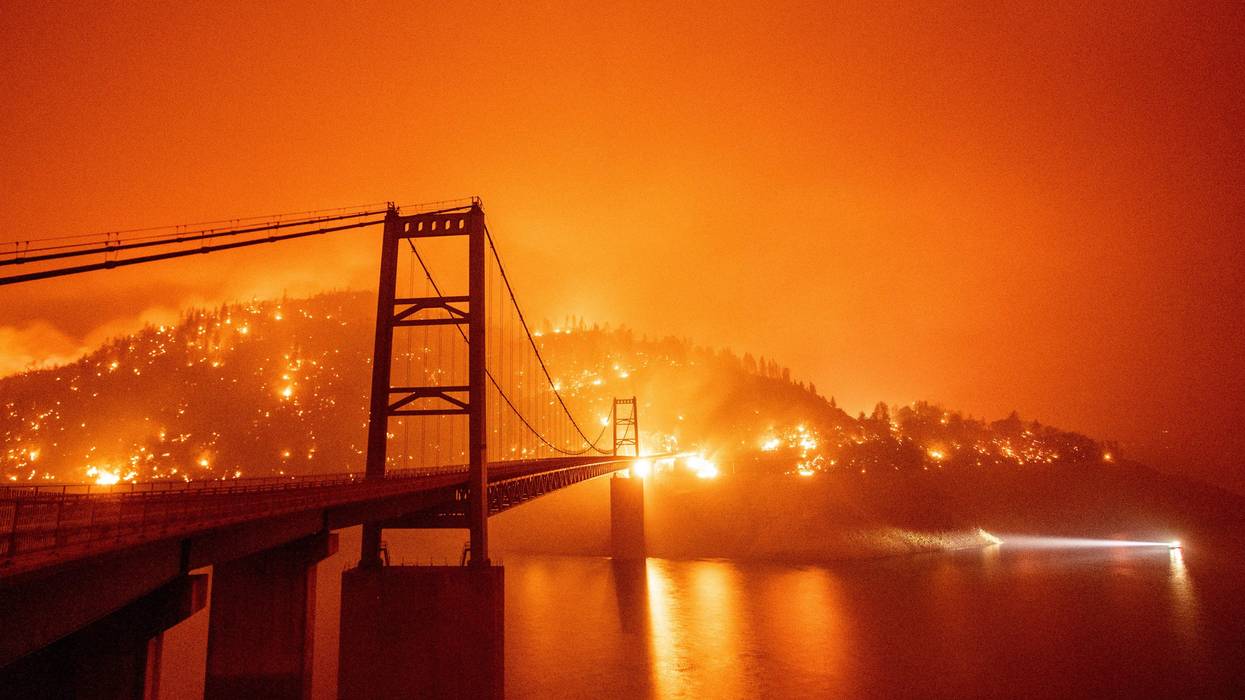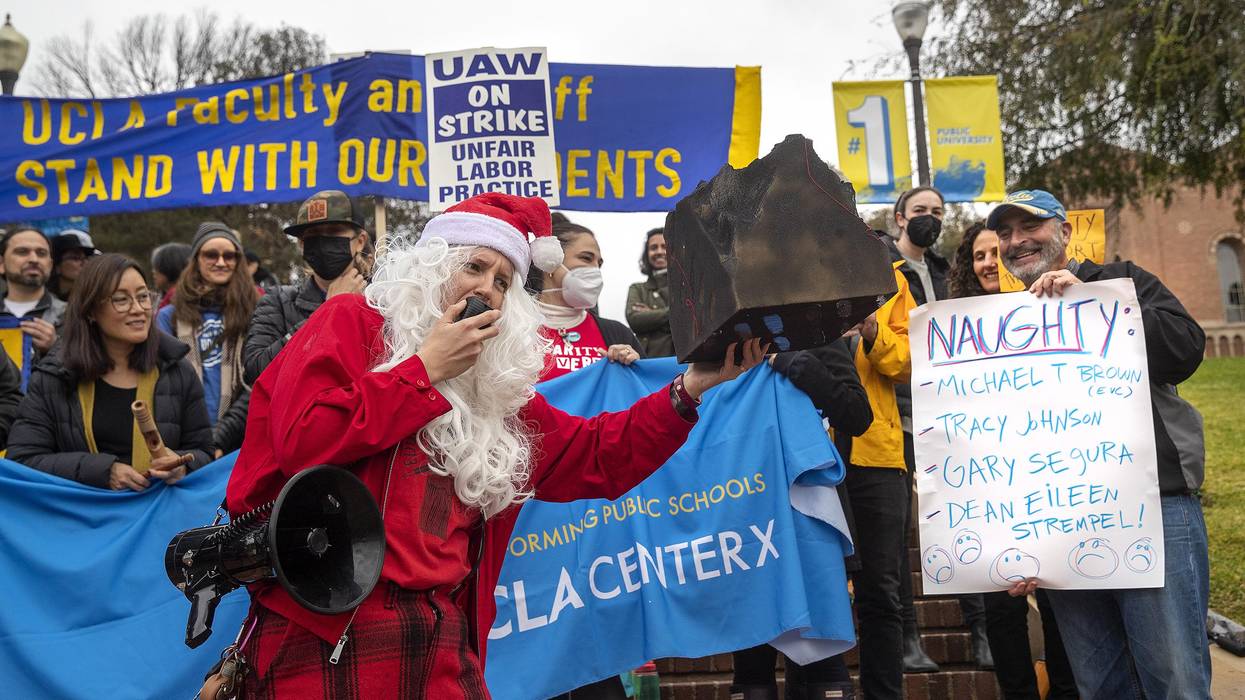Pro-Palestine Students, Faculty Sue UC Santa Cruz Over 'Unconstitutional' Ban
The lawsuit was filed "to vindicate the fundamental democratic and constitutional rights to free speech, free assembly, and due process against overreach by university authorities," the text said.
Students and staff at the University of California, Santa Cruz launched a lawsuit against the school on Monday for barring them from campus without due process after they were arrested at a pro-Palestinian protest in the spring.
The lawsuit, filed by the American Civil Liberties Union (ACLU) Foundation of Northern California, the Center for Protest Law & Litigation, and civil rights attorney Thomas Seabaugh, is demanding that the University "cease summarily banishing" people who exerciser their First Amendment rights as the new academic year beings.
"The bans were incredibly punitive and profoundly unfair," Rachel Lederman, senior counsel with the Center for Protest Law & Litigation, said in a statement. "They went into effect on the spot, instantly cutting students and faculty off from classes, jobs, and other school resources, such as meal plans and healthcare. On-campus residents were rendered homeless. Academic performance suffered."
"It's time to hold UCSC accountable for its illegal use of Section 626.4 campus bans against students and faculty as a tool of censorship."
One impacted student was Elio Ellutzi, a plaintiff and undergraduate who was not only made homeless and cut off from their campus job, they were forced to the miss a pre-scheduled doctor's appointment and delay treatment until the fall.
"It was terrible to miss that appointment and be cut off from my home, the library, and my notes," Ellutzi said. "This all happened during final exams and, even though I had been on the honor roll for the last two quarters, I struggled to complete my coursework and my grades really suffered."
Fellow plaintiff and UCSC undergraduate Laaila Irshad also suffered academically.
"I was a resident assistant living and working in campus housing, so the ban was devastating," Laaila said. "I failed my school courses as I could not access my computer, attend classes, or complete assignments."
The bans were issued to more than 100 students and faculty members who were arrested on the night of May 30, when the university called in more than 100 police officers to clear the school's Palestine solidarity encampment.
Everyone arrested that night was banned from campus under section 626.4 of California's Penal Code, which allows a university to withdraw its consent for an individual's presence on campus for up to two weeks. However, in order for a university to make use of the code, it must first either hold a hearing or decide that an individual poses "a substantial and material threat." Neither criteria were met in the case of those arrested in May, in violation of both state and federal law.
Chessie Thacher, a senior staff attorney at the ACLU Foundation of Northern California, said the bans were "unconstitutional and overbroad, depriving students and faculty of their due process rights."
The lawsuit explained further:
The campus police, acting under defendants' direction, handed out identical one-page Section 626.4 notices to arrestees. The officers handed out so many of these form notices en masse that they eventually ran out of paper and resorted to verbally informing students and faculty of the ban. Some people were also purportedly banned without getting either written or verbal notice. No hearing or opportunity to be heard was provided before any of these bans went into effect. No individualized findings were made about how, post-arrest, "the continued presence" on campus of each summarily banned person presented "a substantial and material threat of significant injury to persons or property."
The notices were also handed out after an arrest experience that was harrowing in and of itself, according to first-hand testimony from plaintiffs.
Christine Hong, a professor of critical race and ethnic studies, said she had gone to the encampment on May 30 to support her students:
When I arrived, I saw a line of officers advancing in militarized formation, moving forward, then stopping, and waiting before continuing their slow march down to the base of campus until they were just two to three feet in front of the line of students. From that point forward, they repeatedly attacked us in waves of violence. The police used their batons to force us so tightly into each other that some protesters were dry heaving from the batons being thrust violently into their organs. When students tried to move the batons away from their stomachs, they were ordered to stay still and bear the pain. The person next to me was later hospitalized for their injuries. In what appeared to be their efforts to pluck off protesters for arrest, officers in full riot gear were unrestrained in their violence, including grabbing people by the neck. One person sustained injuries so severe that they suffered neurological damage and now walks using a cane.
Once arrested, both Hong and Irshad described spending time in police vans with their hands tightly zip-tied and no chance to access facilities.
Irshad recalled:
I was arrested at 6:00 am, while other protesters remained on-site into the morning, still without basic necessities. We were then handcuffed tightly with zip ties and loaded into vans, where static radio blared at deafening volumes. When we pleaded for relief, the volume was increased, and when I asked to use the restroom, I was met with scorn and laughter. It was a shock to be treated so cruelly simply for exercising my right to protest.
The lawsuit stated that it was filed "to vindicate the fundamental democratic and constitutional rights to free speech, free assembly, and due process against overreach by university authorities."
"It's time to hold UCSC accountable for its illegal use of Section 626.4 campus bans against students and faculty as a tool of censorship," Seabaugh said in a statement. "Our clients did not engage in conduct that posed a threat of significant injury to anyone or anything. Banning them on the spot was not just heavy-handed, it was unconstitutional and a violation of basic democratic rights and academic freedoms. We're suing to ensure that in the coming school year, UCSC officials comply with the law and respect the constitutional limits on their power to ban students and faculty from campus."


